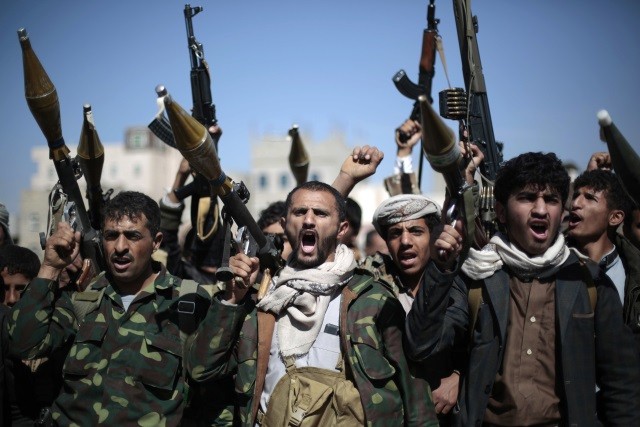Mohammed Ali Al-Houthi, of the Houthi Supreme Political Council, declared, ‘Your strikes on Yemen are terrorism.’
Protests with tens of thousands of Yemenis gathered across several cities on Friday, their collective voice rising against what they perceived as unwarranted US and British airstrikes on their country. The airstrikes were a direct response to Houthi terrorists’ attacks on Red Sea shipping, marking an escalation in the already heightened regional tensions sparked by the Israel-Hamas conflict.
Overnight, the United States and Britain executed numerous airstrikes on Houthi military targets, a move that extended the ripple effect of the conflict in the region. Mohammed Ali Al-Houthi, a member of the Houthi Supreme Political Council, passionately declared, “Your strikes on Yemen are terrorism,” directing his condemnation towards the United States and characterizing it as the “Devil.”
The roots of this latest wave of conflict trace back to Hamas’s attack on Israel on October 7. In response, the Iran-aligned Houthi rebels initiated a campaign targeting shipping lanes, deploying drones, and launching missiles toward Israel. Their vow to persist until Israel ceased its offensive underscored the depth of their commitment to the cause.
Controlling a significant part of Yemen, the Houthis articulated their intent to target all ships bound for Israel, a destination more than 1,000 miles away. Additionally, they issued warnings to international shipping companies, cautioning against using Israeli ports.
This conflict is part of the broader dynamics within the Iran-aligned “Axis of Resistance,” a coalition that has been actively targeting Israeli and US interests. The groups within this alliance, holding the US, Israel’s closest ally, partly responsible for the crisis, view the magnitude of Israel’s response as exacerbating an already volatile situation.
Al-Houthi, in his address, underscored the selective nature of the conflict, stating, “We did not attack the shores of America, nor did we move in the American islands, nor did we attack them. Your strikes on our country are terrorism.”
Adding to the complexity, the Iraqi militia group Harakat al-Nujaba, aligned with Iran, issued a stark warning. They declared that American interests and countries allied with the US would no longer be safe. Meanwhile, in the Yemeni capital, Sanaa, protesters passionately expressed their sentiments by stomping on Israeli and American flags.
This wave of hostilities extends beyond Yemen, as US and allied forces have faced at least 130 attacks in Iraq and Syria since October 17, as reported by Washington. Despite this escalation, the United States currently has no plans to deploy additional forces to the region, according to Pentagon spokesman Patrick Ryder. The situation remains dynamic, with geopolitical tensions continuing to shape the course of events in this troubled region.


